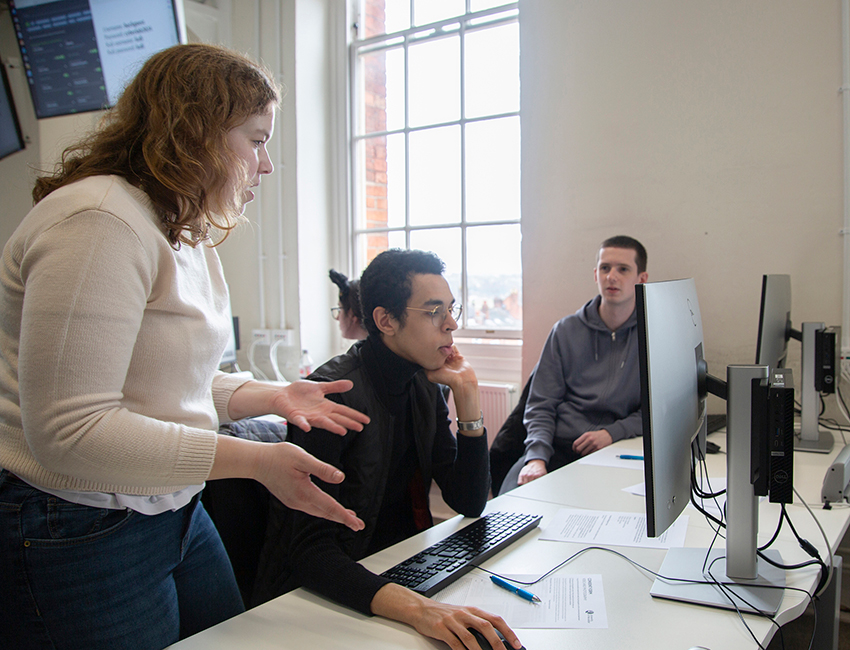
Bachelor of Science (BSc)
Duration:
Specialization:
Admission Requirements:
Course Structure:
Research Opportunities:
Teaching Methods:
Assessment:
Facilities and Resources:
Industry Links:
International Perspective:
Career Opportunities:
Global Recognition:
Post-Graduation Options:
In Summary


1. What is a BSc (Bachelor of Science) program?
2. How long does the BSc program take?
3. What specializations or subjects can I choose?
4. What are the admission requirements?
5. How is the course assessed?
6. Are there opportunities for research?
7. What facilities are available for students?
8. Can I do an internship or work placements?
9. What career paths are available after BSc?
10. Is a UK BSc degree recognized globally?
1. Duration:
BSc programs typically span three years when pursued on a full-time basis. Some programs with integrated placement or study abroad options may extend to four years.
2. Specialization:
BSc programs offer a wide array of specializations, ranging from natural sciences (physics, chemistry, biology) and mathematics to computer science, engineering, environmental sciences, psychology, and many more. Students have the flexibility to choose a major or combine subjects in a joint honors program.
3. Admission Requirements:
Admission criteria for BSc programs vary across universities and disciplines. Generally, applicants need a strong academic record in relevant subjects at the high school level.
4. Course Structure:
The structure of BSc programs includes a mix of lectures, laboratory work (for science and engineering programs), tutorials, and coursework. The curriculum is designed to provide a comprehensive understanding of the chosen field.
5. Research Opportunities:
While BSc programs primarily focus on building foundational knowledge, some programs incorporate research opportunities, particularly in the final year. Students may undertake projects, experiments, or dissertations to apply theoretical concepts in practical settings.
6. Teaching Methods:
Teaching methods include traditional lectures, practical laboratory sessions, tutorials for smaller group discussions, and seminars. The emphasis is on developing critical thinking, problem-solving skills, and hands-on experience.
7. Assessment:
Assessment methods vary and may include examinations, coursework, presentations, and practical assessments. Continuous assessment ensures students are evaluated on their understanding of the subject throughout the course.
8. Facilities and Resources:
Universities in the UK provide well-equipped laboratories, libraries, and other facilities to support BSc students. Access to modern technology and resources enhances the learning experience.
9. Industry Links:
Some BSc programs establish connections with industry partners, offering students opportunities for internships, placements, or industry projects. This exposure to real-world applications contributes to better employability.
10. International Perspective:
Many BSc programs attract a diverse student body, providing an international perspective. This cultural diversity enhances the overall educational experience and prepares students for a globalized job market.
11. Career Opportunities:
Completing a BSc program opens doors to various career paths. Graduates may pursue roles in research, industry, healthcare, technology, or further studies at the postgraduate level.
12. Global Recognition:
BSc degrees from UK universities are globally recognized, contributing to the international reputation of graduates. The quality of education, research output, and the prestige of UK institutions add value to the qualifications.
13. Post-Graduation Options:
Graduates of BSc programs may enter the job market directly or choose to pursue postgraduate studies. Some programs offer integrated master’s options for those seeking an extended and more advanced academic experience.
In summary, BSc programs in the UK provide students with a comprehensive and rigorous education in scientific and technical disciplines. The diverse range of specializations, emphasis on practical skills, and the global recognition of UK degrees make pursuing a BSc an attractive option for those aspiring to enter various fields of science and technology.




